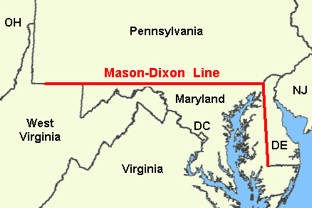Fischer does not deal with the founders of the Deep South in Albion’s Seed for the simple reason that none of them came directly from England as the Puritans, Virginians, Quakers, and Borderlanders had. Instead, they were in Woodard’s words “the sons and grandsons of the founders of an older English colony: Barbados, the richest and most horrifying society in the English-speaking world” (p. 82). The colonizers of Barbados had established a wealthy and powerful plantation economy based on sugar cane, grown entirely by means of a brutal system of slave labor. Having run out of land on Barbados, it became necessary for Barbadians to find new lands, which they did by migrating to other islands in the Caribbean and to the east coast of North America.
The Barbadians arrived near present day Charleston, South Carolina in 1670 and set to work replicating a slave state almost identical to the one they had left behind in Barbados. They bought enslaved Africans by the boatloads and put them to work growing rice and indigo for export to England. They often worked them to death just as they had in Barbados. They built a tremendous amount of wealth from this slave labor, and most of it was concentrated in the hands of a few ruling families who comprised only about one quarter of the white population. They governed the territory solely to serve their own interests, ignoring the bottom three-quarters of the white population, and of course the black majority who actually made up 80 percent of the population. The brutality of the system is certainly shocking to modern sensibilities, and it was even shocking to the Barbadian’s contemporaries.
While slavery was initially tolerated in all of the colonies, it was an organizing economic principle only in the Tidewater region and the Deep South. However, there were important differences. Initially, the Tidewater leaders had imported labor in the form of indentured servants both white and black. Indentured servants could earn their freedom, and many blacks did. In the Tidewater, slaves outnumbered whites by only 1.7 to 1, and the slave population grew naturally after 1740, eliminating the need to import slaves. And because there were few newcomers, the black population of the Tidewater was “relatively homogenous and strongly influenced by the English culture it was embedded within” (Woodard, p. 87). Having African heritage did not necessarily make someone a slave in the Tidewater. People in the Tidewater found it harder to deny the humanity of black people.

The Deep South. Popularly regarded as the cultural boundary separating North and South (Dixie)
In the Deep South, however, the black population outnumbered the white population by about 5 to 1, and blacks lived largely apart from whites. Moreover, the separation of whites and blacks was strictly enforced, and the white minority thought of blacks as inherently inferior. Because they were so greatly outnumbered, Southern plantation owners also feared the possibility of a violent rebellion, and they organized militias and conducted training exercises in case they might need to respond to an uprising. “Deep Southern society,” says Woodard, “was not only militarized, caste-structured, and deferential to authority, it was also aggressively expansionist” (p. 90). Unfortunately, the slaveholding practices of the Deep South eventually caught hold in the Tidewater too. By the middle of the 18th century, permanent slavery came to be the norm everywhere south of the Mason-Dixon line.



